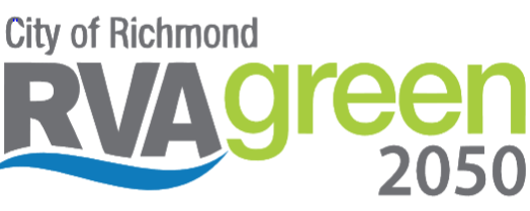
Community
Strengthening our Richmond community through volunteering creates powerful connections that are vital for advancing sustainability and environmental justice initiatives. By working together, we can build a more resilient and equitable future for all, fostering a shared responsibility for our environment and each other.
Where to Start
-
Getting involved in your community starts with understanding the local landscape of support and resources. A great first step is to learn more about the diverse local organizations operating within the City of Richmond. The provided list is a helpful starting point, but remember that there are likely even more resources available within your specific neighborhood or area. By exploring these organizations, you'll gain valuable insight into how resources are distributed across the city and the types of support that currently exist. This understanding will, in turn, help you identify potential gaps in services and pinpoint areas where your time, skills, or resources could be most impactful in supporting your community.
-
Taking your community involvement a step further can involve direct participation in local initiatives. Exploring and engaging with Richmond Grows Gardens offers a fantastic opportunity to connect with your neighbors and contribute to a shared community resource. With many established community gardens throughout the city, a great way to get involved is by attending scheduled volunteer days. This provides a hands-on introduction to community gardening, allowing you to connect with fellow community members, learn about collaborative projects, and contribute to the beautification and productivity of these shared green spaces
-
For those seeking to engage with their community at a deeper, systemic level, consider participating in the Sustainability Resilience Commission. This commission offers a unique and impactful way to contribute your valuable insights from your lived experience directly into local policy-making. By becoming a member, you can be part of the real change happening in your community, providing crucial perspectives to improve existing plans and shape the creation of new initiatives aimed at enhancing sustainability and resilience within Richmond.
Build your Toolbox
-
Environmental Protection Agency
The Building Blocks for Sustainable Communities technical assistance program is delivered by EPA staff and EPA-hired consultant teams. Each technical assistance project spans a period of roughly eight months, including inclusive public engagement through a two-day workshop, the involvement of relevant decision-makers and potential public and private sector partners, and a report outlining the workshop process and specific next steps generated that the community could take to achieve its goals. The workshop focuses on the issues and priorities determined by the community.
Environmental Protection Agency
EJSCREEN is the environmental justice screening tool used by EPA to provide a nationally consistent dataset and methodology for calculating "EJ indexes," which highlight places that may be candidates for further review. The tool offers a variety of powerful data and mapping capabilities that enable users to access environmental and demographic information, at high geographic resolution, across the entire country. EJSCREEN is now available as a mobile app.
-
The Commercial Property Assessed Clean Energy (C-PACE) Program is a financing tool that empowers commercial and multi-family (5 units or more) property owners to make sustainable and environmental improvements to their properties. Owners who use the C-PACE program to make energy efficiency, water conservation, and renewable energy improvements are eligible for a fixed-rate loan, with 100% upfront capital, placed as a lien on their property-tax assessment.
-
City of Richmond - Office of Sustainability
The Richmond Sustainability & Resilience Commission (“SRC”) is a 9-member public commission tasked advancing climate action in Richmond. The SRC collaborates with the Richmond Office of Sustainability to implement the RVAgreen 2050 Climate Equity Action Plan 2030 and holds 6 annual meetings that are free and open to the public.
Southside ReLeaf is a community-based organization committed to environmental justice in South Richmond. Our goal is to improve the life expectancy and quality of life for Southside residents by increasing green spaces, reducing pollution and improving infrastructure.
The Climate Safe Neighborhoods (CSN) partnership, a collaboration between Groundwork USA and nine Groundwork trusts, examines neighborhood disparities in vulnerability to climate change in the context of segregationist housing polices of the past century.
Check out new and sessional programs
The Resiliency Garden Initiative is for residents if they are concerned about food security issues during this time and live in the Richmond Region (area code 804), they will build a raised bed for you in your backyard at ZERO cost.
Southside Green Collaborative is designed to listen to Southside neighbors and equip them with the tools to create a community-centered plan for a greener, cleaner, and cooler South Richmond.
Discover the power to maintain your home and prevent costly repairs by registering for their ToolBOX workshops. Home care and repair don't have to be daunting or expensive. Their workshops provide practical, expert-led sessions lasting 1-2 hours, focusing on key topics that impact your home's safety, health, and comfort.
Securing Funds Through Tax Credits and Incentives (non-profit and small business specific) Significant funds may be available if you have employees, provide healthcare benefits, make energy-related investments, or innovate by creating new products or services,
Not all Farmers Markets are listed on the website.
Sustainability Guide Resources









